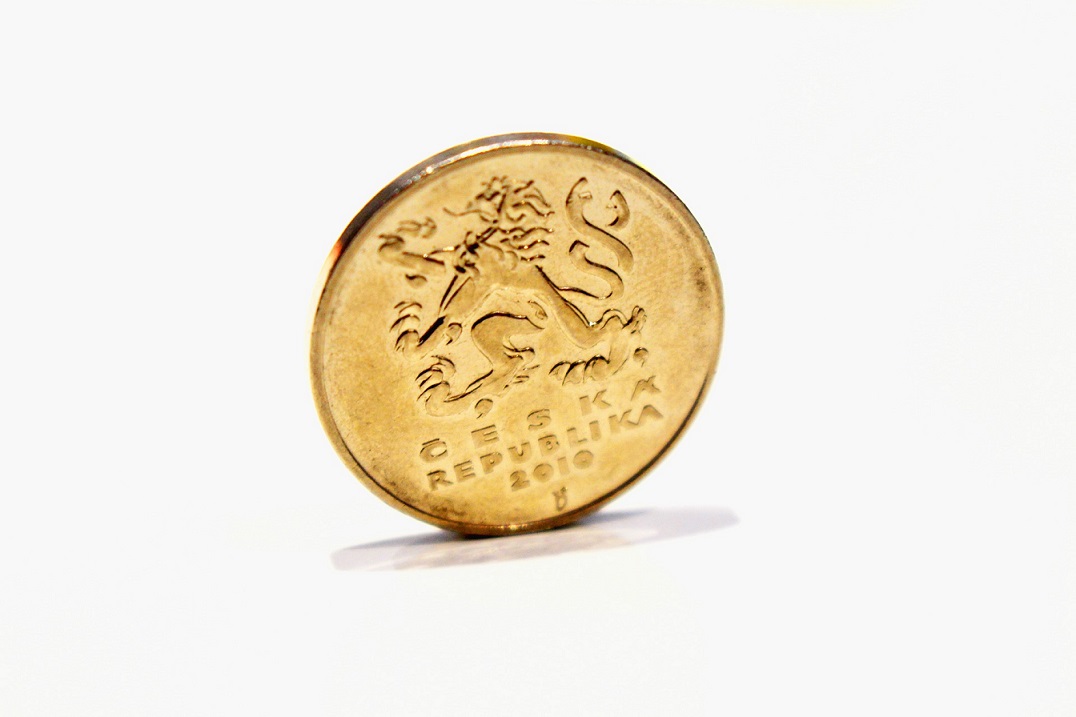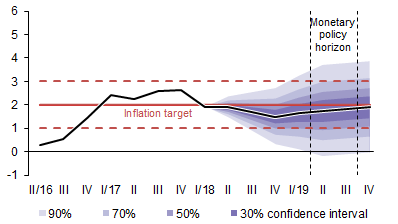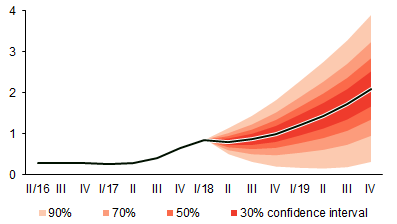
Slight slowdown in appreciation of Czech crown ahead
The Czech National Bank expects the slowdown of the strengthening of the Czech crown to continue until 2019. The latest inflation report released by the Czech National Bank (CNB) also forecasts a rise in prices, which could lead to an increase in interest rates. Image source: Pixabay
Prepared by Berk Büyükbalcı
According to the report, the CNB expects the trend of higher interest rates in the Czech Republic, as compared to the Eurozone, to continue with the strengthening of the Czech crown.
However, this latest report shows a slight retreat from the CNB’s previous projections, released in February 2018.
The Czech crown, with an exchange rate of 25.47 crowns to the euro at the moment, is slightly weaker than forecast earlier this year by the CNB.
By the end of this year, the CNB projects that the Czech crown will strengthen to approximately 24.60 crowns to the euro, and to 24.30 crowns to the euro by the end of next year (2019), which represents less appreciation of the crown than earlier predicted.
This slowdown in the strengthening of the crown is expected due to a change in the monetary policies of the European Central Bank, adopting a policy based on higher interest rates. These developments may lead to a decrease in the attractiveness of the Czech Republic for investors, according to Chris Johnstone from Radio Prague (Czech national banks sees slowdown in crown appreciation, published 4/5/2018).
According to the CNB’s forecast, inflation rates will fall under 2.0 percent in 2019, which is consistent with the recent economic forecast of the International Monetary Fund (IMF) on inflation rates in the Czech Republic.
Chart – inflation forecast. Source: CNB.

The fall in inflation rates is partially due to cheaper imported goods and lower food prices, Johnstone concludes.
In addition to the direct effect of the exchange rates on the prices of imported goods, not to mention imported raw materials for the production of domestic goods, exchange rates can affect the prices of domestic goods through import arbitrage, whereby prices of domestic goods are put under competitive pressure by imported products.
Chart – interest rates forecast. Source: CNB.

Deloitte’s Czech Economic Outlook 2018 reads: “If the prices of food settle down and no price shock occurs, inflation should gradually decrease. It should remain under two percent throughout most of 2018”.
How the Czech crown behaves is a crucially decisive factor on the formation of Czech interest rate policies. The key interest rates remained unchanged at 0.75 percent following the decision of the CNB board on Thursday May 3.
Moreover, the CNB foresees economic growth of around 3.00 percent for the Czech Republic throughout 2018 and 2019, which is consistent with recent IMF projections.
The less than expected appreciation of the crown against the euro, in turn, may influence the debate on switching from the Czech crown to the euro in the future.

